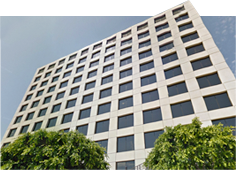Embassy Processing of Employment-Based Immigrant Visas
What is the Immigrant Visa Process?
Generally, if the beneficiary resides outside of the U.S. (or is in the U.S. without a valid immigration status), they will apply for lawful permanent residence at the U.S. Embassy or Consulate in their home country. Once USCIS approves the Employer’s petition for alien worker, the approved petition is forwarded to the Department of State’s National Visa Center (NVC). When the worker’s priority date is almost current for processing, the NVC will commence processing the paperwork and fees required of the principal immigrant and dependent family members. Next, the NVC will forward the file to the appropriate U.S. Embassy/Consulate which will schedule the applicant (and accompanying family members) for an immigrant visa interview.
During the visa interview, the interviewing Consular Officer will review whether a valid job offer continues to exist, and may ask for continued proof of the job offer and employer’s viability, among other items. If the immigrant visa is approved – and any required waivers have been granted – the immigrant worker and family are able to travel to the U.S. During their entry at the airport, a Customs and Border Patrol (CBP) Officer will collect documentation from the immigrant and confirm the address to where the Green Card will be mailed.
Denial of an Immigrant Visa
Under the doctrine of consular non-reviewability, consular officers have authority to deny visas, and that authority cannot be appealed. As absolute as this sounds, there are some terms that denied visa applicants should be aware of.
- Refusal Under Section 221(g): This is the most common type of visa refusal, issued when further documentation as to the immigrant’s eligibility is needed. Sometimes this may simple call for the submission of a document, such as a previous court order, police clearance certificate or birth certificate. Other times, a 221(g) refusal entails the officer determining that a ground of inadmissibility exists, and a waiver is necessary.
- Administrative Processing: Usually means that the case is still pending due to required background or security clearances. In such cases, the Law Firm inquires and follows up with the State Department if the processing is still ongoing 30 days after the interview.
- Motion to Reconsider: Consular decisions are non-reviewable, however, where an evaluation shows that legal grounds exist to challenge the decision, a request to reconsider the prior decision may be submitted. One year from the date of the denial is the deadline for submission of the “MTR”. As MTRs are only rarely granted, they need to be prepared and presented with the highest level of competence to stand a chance.
Some Perspective on Visa (Consular) Processing
Visa applicants anticipating an Embassy interview are often apprehensive. They have heard the stories from people that might have had a bad experience during an embassy interview, or they may fear the black mark that goes into their record if they are denied. Long processing delays, mistakes in the law by immigration officers, and lifetime bans for certain grounds of inadmissibility can make the entire process very stressful. To make matters worse, a visa decision at the Embassy is non-appealable. Despite all of this, the vast majority of visa applicants at U.S. Embassies and Consulates abroad need not worry too much. They will likely find the process to be well-organized and during the interview they will likely be met by a courteous (and possibly fluent in the local language) Consular Officer.
A consultation with the Khurgel Immigration Law Firm can also remove a significant amount of “fear of the unknown” from the process. Attorney Khurgel’s previous Law Firm had an office in Manila, Philippines, and Attorney Khurgel consulted with clients there about applying for visas. Typical cases handled before the Embassy included B-2 and F-1 visa denials, Immigrant Visas with waivers, Child Status Protection Act (CSPA) cases, H-1B, L-1 and E-2 visa preparation, Citizenship matters, and rescuing cases from a black-hole of processing delays. Attorney Khurgel also worked at several U.S. Embassies himself – with USCIS (in Moscow, Russia) and the Department of State (in Baku, Azerbaijan), providing valuable experience in helping clients today.
It is because of our Law Firm’s unique experience in the realm of Visa and Waiver practice that clients often call upon us with complex Consular inadmissibility or case denial issues. People that have been previously deported from the U.S., have unlawful presence or previous immigration fraud issues, a criminal history, or simply a challenging fiancée or spouse visa situation, have turned to this law firm to handle their case. Attorney Khurgel is licensed and available to represent his clients at embassies and consulates throughout the world. Using modern technology, we assist clients located in various countries. Our expertise in this area allows us to handle a case from all angles – from federal immigration and criminal law to foreign-based U.S. Embassy operating procedures.
The process, technique, and expertise of working with embassies and consulates abroad demands both experience and global reach. A thorough consultation with Attorney Khurgel will provide a visa applicant an understanding of the relevant issues involved in an employment-based Immigrant Visa application, inadmissibility or waiver, and the possibility for a favorable outcome.






